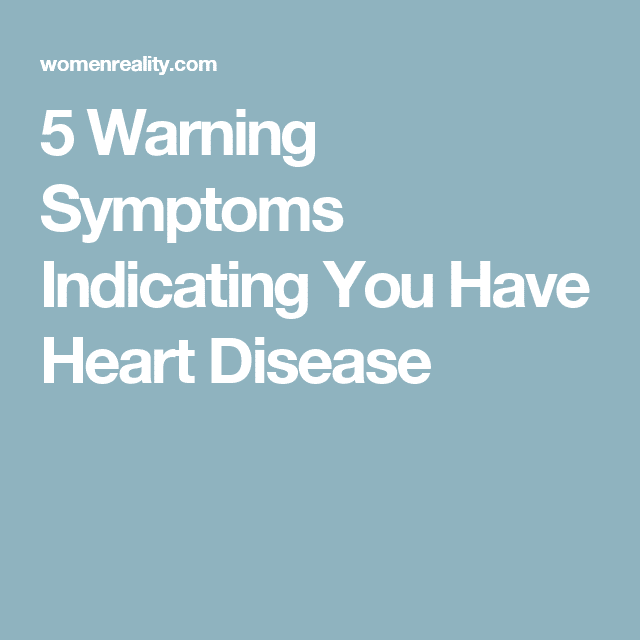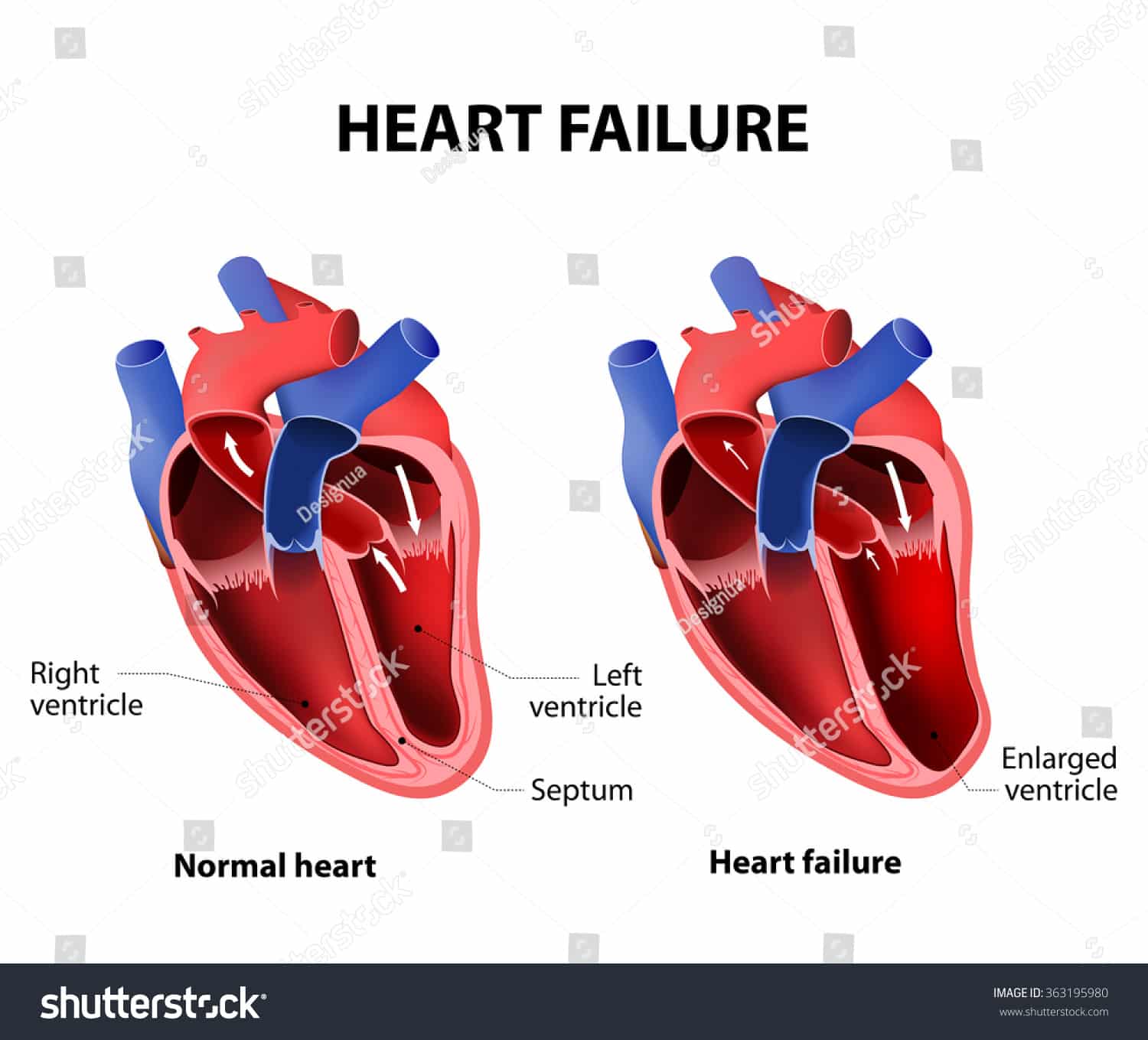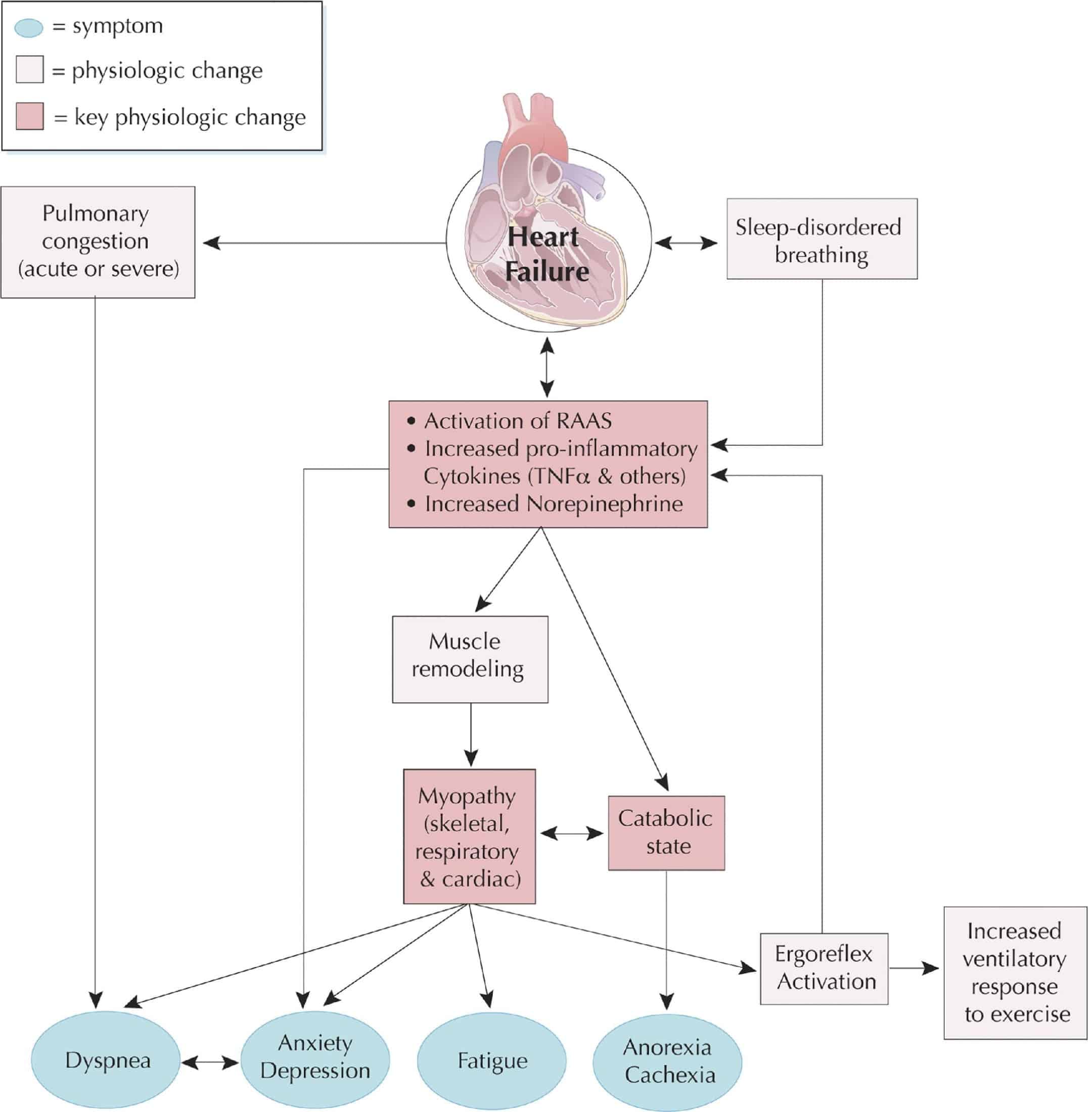What Types Of Congestive Heart Failure Are There
Your heart consists of four chambers, with the upper two being the left and right atria, and the lower two being the left and right ventricles. The atria receive blood as it enters the heart so that the ventricles can then pump it through the bodys circulatory system and supply blood to the bodys tissues and organs.
There are two main types of CHF, with the most common being left-sided CHF and the other being right-sided CHF.
Left-sided CHF occurs when the left ventricle cant pump enough blood. This results in the lungs filling with fluid, causing breathing to become difficult.
This may be due to either:
- Systolic failureSystolic failure occurs when the left ventricle cant contract normally, which prevents it from moving enough blood through the circulatory system.
- Diastolic failureWith diastolic failure, the muscles of the left ventricle become rigid. This prevents the chamber from refilling with enough blood to then be pumped through the circulatory system.
With right-sided CHF, the right ventricle is unable to pump enough blood to the lungs which can result in blood accumulating in the bodys vessels. This causes fluid buildup in the lower extremities, abdomen and other vital organs.
While it is possible to have both right-sided and left-sided CHF at the same time, the disease typically starts on the left and moves to the right as it progressively worsens. This is why early detection and treatment are critical.
Signs And Symptoms Of Congestive Heart Failure
During heart failure, the body tries to compensate for reduced blood flow in other ways, including:
- Enlarging the Heart Chamber This is the bodys attempt to get the heart to contract more strongly, in order to pump more blood. Initially, it may help the heart function more efficiently, but ultimately it causes the heart to not pump as effectively and causes fluid retention, leading to congestion in the lungs.
- Developing More Heart Muscle Mass The contracting cells in the heart get bigger, which initially lets the heart pump more strongly.
- Increasing Heart Rate This causes the heart to pump faster and increase its output.
- Increasing Fluid and Salt Retention and Tightening Some Blood Vessels This helps maintain the hearts normal output.
These compensations may mask heart failure temporarily, but eventually heart failure gets worse, and people start to experience symptoms.
The Four Congestive Heart Failure Stages
If left untreated, congestive heart failure symptoms may go from non-existent to disabling.
This is divided into four classes:
Don’t Miss: What Should My Heart Rate Be While Sleeping
How Is Chf Diagnosed
After reporting your symptoms to your doctor, they may refer you to a heart specialist, or cardiologist.
The cardiologist will perform a physical exam, which will involve listening to your heart with a stethoscope to detect abnormal heart rhythms.
To confirm an initial diagnosis, a cardiologist might order certain diagnostic tests to examine your hearts valves, blood vessels, and chambers.
There are a variety of tests used to diagnose heart conditions. Because these tests measure different things, your doctor may recommend a few to get a full picture of your current condition.
Experienced Care For Heart Failure

Our board-certified physicians and surgeons in the Heart & Vascular Center are leaders in the evolution of advanced care for heart failure. Our team behind the discovery of defibrillation and cardiac resynchronization were the first to use ACE inhibitors to stop the progression of heart failure and performed the first successful artificial heart transplant and the first ventricular assist device implantation in New England.
We provide comprehensive inpatient and outpatient care to adults with complex heart failure caused by cardiomyopathy and other life-threatening heart diseases. Our multidisciplinary team of cardiologists, interventional cardiologists, electrophysiologists, cardiac surgeons, cardiac anesthesiologists, radiologists, nurse practitioners and social workers work together to achieve the best plan of care for our patients. Together, the team tailors therapies to each patientâs needs, offering the latest medical, interventional, and surgical approaches toâ¯congestive heart failure treatment.
Our Advanced Heart Failure/Cardiomyopathy Program offers patients access to many clinical trials as well as innovative therapies and programs, including:
You May Like: Exercise After Heart Valve Replacement Surgery
What Are The Most Common Symptoms Of Congestive Heart Failure
Swelling is the most common symptom of congestive heart failure. Often, swelling is most apparent in the extremities, especially in the legs and ankles, but it can occur in other parts of the body as well. Fluid collection in and around the lungs can cause shortness of breath , especially during physical activity or when lying down. Other common symptoms of heart failure include fatigue, loss of appetite, and weight gain.
How Can I Improve My Quality Of Life With Heart Failure
There are several things you can do to improve your quality of life if you have heart failure. Among them:
- Eat a healthy diet. Limit your consumption of sodium to less than 1,500 milligrams each day. Eat foods high in fiber. Limit foods high in trans fat, cholesterol, and sugar. Reduce total daily intake of calories to lose weight if necessary.
- Exercise regularly. A regular cardiovascular exercise program, prescribed by your doctor, will help improve your strength and make you feel better. It may also decrease heart failure progression.
- Don’t overdo it. Plan your activities and include rest periods during the day. Certain activities, such as pushing or pulling heavy objects and shoveling may worsen heart failure and its symptoms.
- Prevent respiratory infections. Ask your doctor about flu and pneumonia vaccines.
- Take your medications as prescribed. Do not stop taking them without first contacting your doctor.
- Get emotional or psychological support if needed. Heart failure can be difficult for your whole family. If you have questions, ask your doctor or nurse. If you need emotional support, social workers, psychologists, clergy, and heart failure support groups are a phone call away. Ask your doctor or nurse to point you in the right direction.
Read Also: Why Is My Resting Heart Rate 100
When Should I Call An Ambulance
If you have any of the symptoms below, call triple zero immediately and ask for an ambulance. If calling triple zero does not work on your mobile phone, try calling 112.
- chest pain thats severe or worsening, or has lasted longer than 10 minutes
- chest pain that feels heavy, crushing or tight
- other symptoms, such as breathlessness, nausea, dizziness or a cold sweat
- pain in your jaw or down your left arm
What Are Treatment Options For Heart Failure
Heart failure requires a lifelong management regimen. Several drugs may be prescribed to treat congestive heart hailure, depending on the patients type of heart failure and severity of the symptoms. They include:
- angiotensin-converting enzyme inhibitors, which boost blood flow by widening blood vessels
- b-blockers, which slow the heart rate and cut hypertension
- digitalis, which helps the heart contract more strongly
- diuretics, which promote urination to prevent fluid retention in the body and especially the lungs.
Bypass surgery can help if blocked arteries are leading to heart failure, and heart valve replacement may also correct another leading cause. In extreme cases, patients will receive a heart transplant.
You May Like: What Are The Signs And Symptoms Of Congestive Heart Failure
Our Favorite Online Support Groups
Sponsored by the American Association of Heart Failure Nurses, this online support community for anyone who has been affected by heart failure allows you to connect with others and to hear from real medical experts. There is also a resource section that has information on things like low-salt cookbooks and patient tips for getting through the holidays.
This network has tracks for various heart conditions, where you can post questions, share your story, and learn more about your condition. Once you sign up to become a part of the community, you will receive personalized content based on your condition and concerns.
Deaths From Heart Failure Vary By Geography
Heart failure is more common in some areas of the United States than in others. Below is a map showing the rate of death from heart failure by county during 20142016.
The map shows that concentrations of counties with the highest heart disease death rates meaning the top quintile are located primarily in Mississippi, Louisiana, Arkansas, Oklahoma, Texas, Kentucky, Tennessee, Indiana, Illinois, and Wisconsin. Pockets of high-rate counties also were found in Oregon, Utah, Montana, South Dakota, and Nebraska.
Recommended Reading: Dogs Congestive Heart Failure Stages
How Does Heart Failure Affect The Quality Of Life And Lifestyle
With the right care and treatment plan, many adults still enjoy life even though heart failure limits their activities. How well you feel depends on:
- How well your heart muscle is working.
- How well you respond to your treatment plan.
- How well you follow your treatment plan.
This includes caring for yourself by:
- Taking your medications.
Cardiac Rehabilitation And Physical Activity

Attending a cardiac rehabilitation program is one of the best things you can do for heart failure. Many people can benefit from cardiac rehabilitation – it can improve your quality of life, keep you out of hospital and have a positive impact on your mental health and wellbeing.
Cardiac rehabilitation combines exercise and education sessions to help you make healthy changes. This includes exercise to help increase your strength, fitness and confidence levels. Exercise includes activities that make you slightly out of breath, while still being able to hold a conversation. For example, walking or riding a stationary bike. It might also include exercises that use light weights or other equipment. Youll get a tailored exercise program to suit you and you will be able to go at your own pace. Many cardiac rehabilitation service now offer home-based services via telephone and/or over the internet.
Visit the Heart Foundations cardiac services directory to find a cardiac rehabilitation program near you.
Read Also: Fluid In The Lungs After Heart Surgery
Nausea Or Lack Of Appetite
Nausea or lack of appetite can result from the accumulation of fluids in your abdomen.
Several of the signs and symptoms of congestive heart failure can also be associated with other diseases and medical conditions. Therefore, it is important that you see your doctor when any of them present themselves and persist.
If you are being treated for congestive heart failure and any of these signs and symptoms get worse, or if you begin to experience additional signs and symptoms, you should inform your doctor immediately. This can indicate that your heart failure is progressing and that your treatment is not working.
Treatment And Medication Options For Congestive Heart Failure
Heart failure is a chronic condition, and there is no cure. However, once youve been diagnosed, there are several things you can do to treat the condition and manage it so that it does not progress. Chief among them are lifestyle changes. That includes exercising and maintaining a heart-healthy diet thats low in saturated fat, trans fats, and cholesterol.
Read Also: What Is A Good Average Resting Heart Rate
What Is The Outlook With Heart Failure
With the right care, congestive heart failure wont stop you from doing the things you enjoy. Your prognosis, or outlook for the future, will depend on:
- How well your heart muscle is working.
- How well you respond to your treatment plan.
- How well you follow your treatment plan.
One study says that people with heart failure have a life span 10 years shorter than those who dont have heart failure. Another study showed that the survival rates of people with chronic heart failure were 80% to 90% for one year, but that dropped to 50% to 60% for year five and down to 30% for 10 years.
A different study found that people who had heart failure and were discharged from the hospital had expected life spans ranging from three to 20 years, depending on various factors like age and gender. Its important to look at your specific situation when considering your prognosis.
Symptoms Of Heart Muscle Failure Ranging From Mild To Severe
Heart failure symptoms present as a function of the disease severity, ranging from mild to severe cases. Mild symptoms of heart failure include dry, hacking coughs, worsening shortness of breath with activity, increased swelling of legs, feet, and ankles, sudden weight gain, discomfort or swelling in the abdomen, and a hard time falling asleep. Severe symptoms are escalated versions of these symptoms with the addition of possible dizziness, confusion, sadness or depression, loss of appetite, and an inability to lie flatA quantitative measure of heart muscle failure is the ejection fraction, the amount of blood pumped out of the left ventricle as a fraction of the amount of blood in the left ventricle. It measures how efficient the ventricle is at emptying itself and deploying blood to the rest of the body. Borderline ejection fractions have a value of 41-49%, where symptoms are noticeable during activity. Reduced ejection fractions are less than 40%, where symptoms may be noticeable during rest. Tracking symptoms are very important to managing and improving the quality of life and the ejection fraction associated with congestive heart failure. Shortness of breath, heart rate, daily weight, swelling, blood pressure, and impaired thinking are all important symptoms to track when managing heart When managing heart muscle failure.
Recommended Reading: How Many Types Of Heart Bypass Surgery
How The Normal Heart Works
The normal healthy heart is a strong, muscular pump a little larger than a fist. It pumps blood continuously through the circulatory system.
The heart has four chambers, two on the right and two on the left:
- Two upper chambers called atria
- Two lower chambers called ventricles
The right atrium takes in oxygen-depleted blood from the rest of the body and sends it through the right ventricle where the blood becomes oxygenated in the lungs.
Oxygen-rich blood travels from the lungs to the left atrium, then on to the left ventricle, which pumps it to the rest of the body.
The heart pumps blood to the lungs and to all the bodys tissues through a sequence of highly organized contractions of the four chambers. For the heart to function properly, the four chambers must beat in an organized way.
What Are The Types Of Heart Failure
Systolic dysfunction happens when the heart muscle doesn’t contract with enough force, so there is less oxygen-rich blood pumped throughout the body.
Diastolic dysfunction happens when the heart contracts normally, but the ventricles donât relax properly or are stiff, and less blood enters the heart during normal filling.
A calculation done during an echocardiogram, called the ejection fraction , is used to measure how well your heart pumps with each beat to help determine if systolic or diastolic dysfunction is present. Your doctor can discuss which condition you have.
Also Check: What Heart Rate Is Tachycardia
Prevent Congestive Heart Failure And Heart Disease Through A Balanced Diet
Good lifestyle choices can prevent the onset of heart failure or help mitigate the symptoms for patients with chronic heart failure. Alcohol and tobacco use is a significant risk factor that results in arterial damage. Limiting this, including even secondhand smoke, goes a long way in avoiding congestive heart failure. Prototypical heart-healthy foods and a balanced diet can supplement the limiting of vices. Some of these foods include lean protein , fruits and vegetables, foods low in saturated fat, trans fat, sugar, and sodium, and good fats like olive oil, fish, and avocados.
Learn to manage your lifestyle
Managing and monitoring your weight through a good diet and regular exercise is critical for maintaining good heart health. Finally, in instances where individuals have conditions that weaken the heart, it is important that they adhere to their existing treatment program. Treating underlying risk factors such as high cholesterol and blood pressure has been shown to prevent heart attacks and coronary artery disease two of the primary drivers of heart failure.
Complications Of Congestive Heart Failure

- Rapid Weight Loss Severe heart failure can lead to a rapid loss of weight that can be life-threatening. Heart failure can cause blood to back up into the liver and intestines, causing these organs to swell. This swelling can lead to nausea and loss of appetite, and can prevent the body from absorbing nutrients from food.
- Impaired Kidney Function Congestive heart failure weakens the hearts ability to pump blood, reducing blood flow to the kidneys. This can lead to kidney damage or kidney failure, if left untreated.
- Liver Damage Heart failure can cause fluid to build up in the liver, which can lead to scarring. This makes it more difficult for the liver to carry out its day-to-day functions.
- Arrhythmias Heart failure results in damaged heart muscles, which can lead to the development of an arrhythmia, or abnormal heart beat. Arrhythmias can include the heart beating too quickly, beating too slowly, or beating irregularly.
- Heart Valve Problems If the heart is enlarged due to heart failure, the valves of the heart, which ensure appropriate direction of blood flow through the organ, may not function properly.
- Angina and Heart Attack Heart disease is a major contributing factor in many heart failure cases, and people with congestive heart failure are at continued risk of angina and heart attack.
Don’t Miss: Congestive Heart Failure Medication
